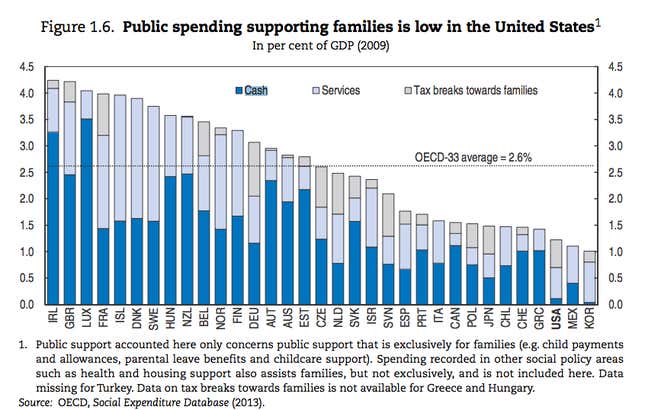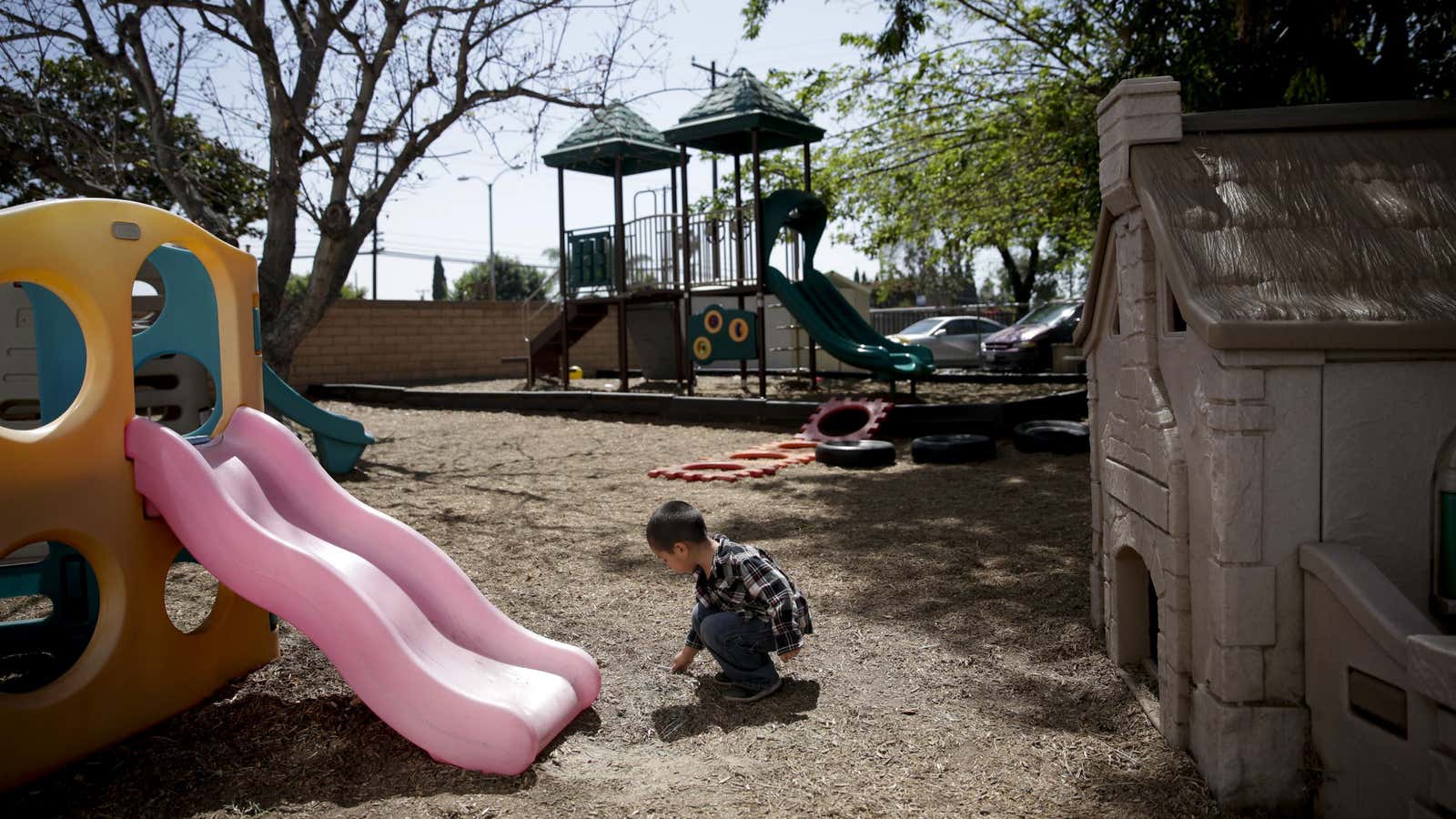Just in time Father’s Day, the rich-country think tank known as the OECD has issued its annual survey of the US economy. The Paris-based organization specializes in churning out reports that standardize data across national boundaries, enabling observers to compare countries against one another. The entire report is worth a glance, but its comparisons of government spending on social policies to support families really stood out to us.
For example, the amount of unpaid time new mothers in the US can take off, while legally entitled to keep their job, lags far behind other rich nations. And while the Family and Medical Leave Act (FMLA) allows workers in large American companies to take up to 12 weeks of unpaid leave, “many do not take it or take shorter leave because they cannot afford it,” the OECD reports.
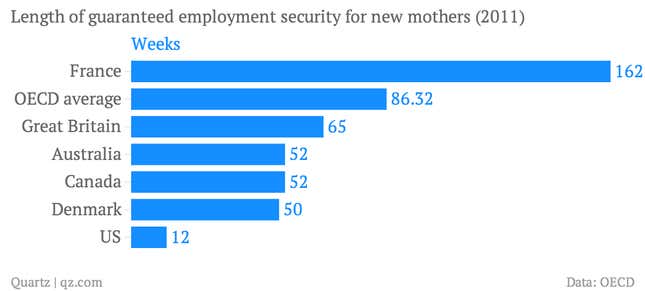
And the US is the only advanced economy that does not have a nationwide paid leave policy for new mothers. However, there is some paid maternity leave in the US: New Jersey, California, and Rhode Island have family leave programs that new mothers can use, and some well-heeled companies provide it on their own.
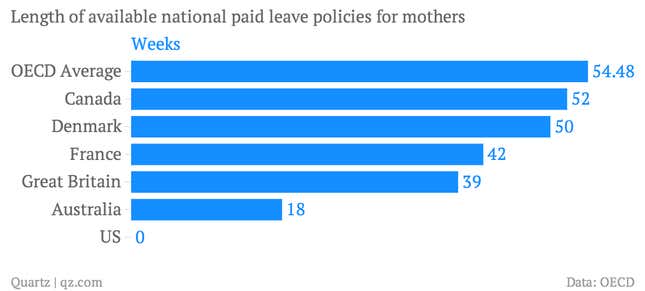
American spending on direct cash payments for family support items is some of the skimpiest, as a share of GDP.
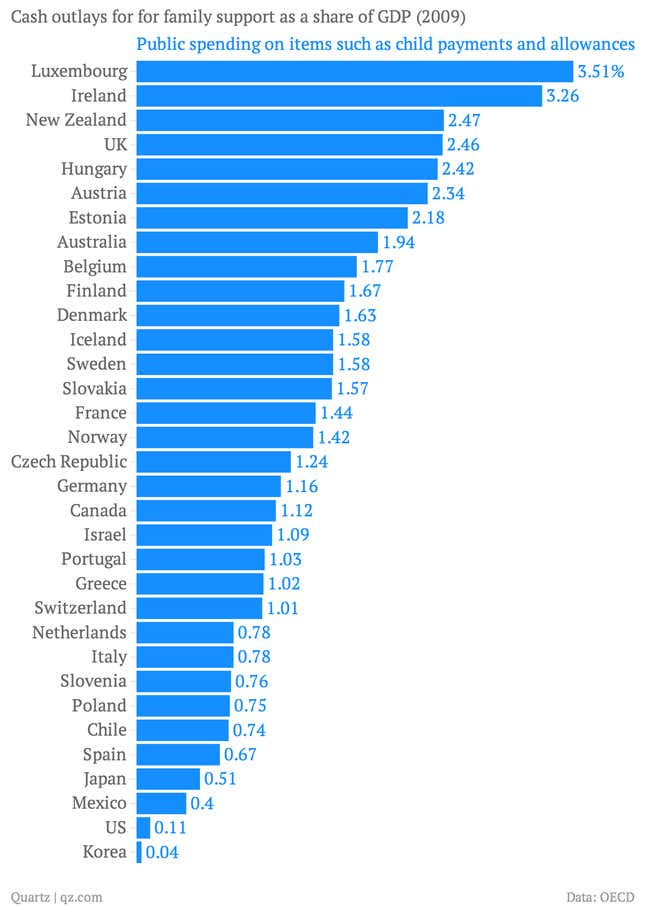
Though US spending on family support services is a bit better.
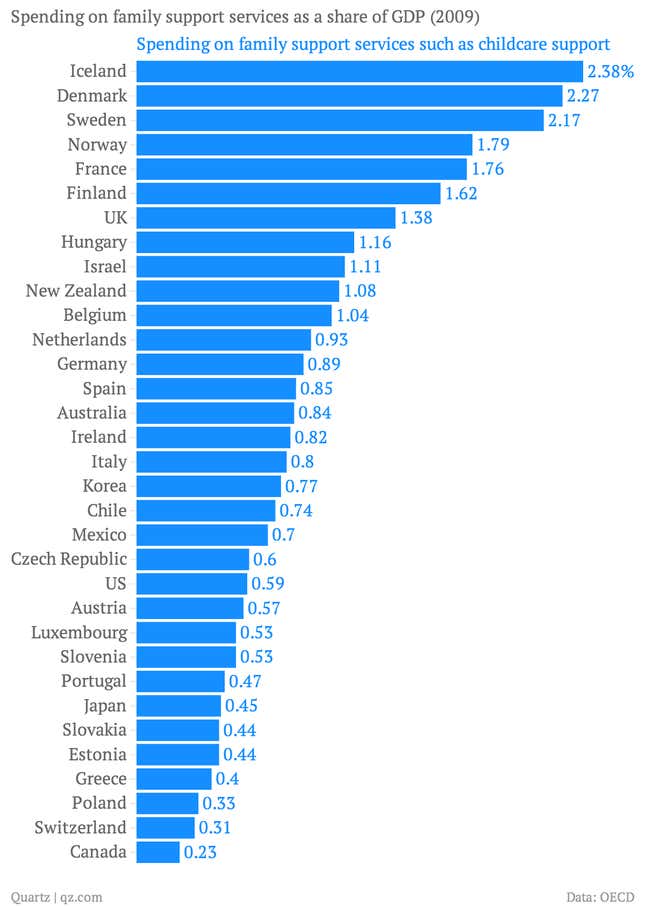
And the US ranks roughly in the middle of the pack when it comes to spending via tax breaks.
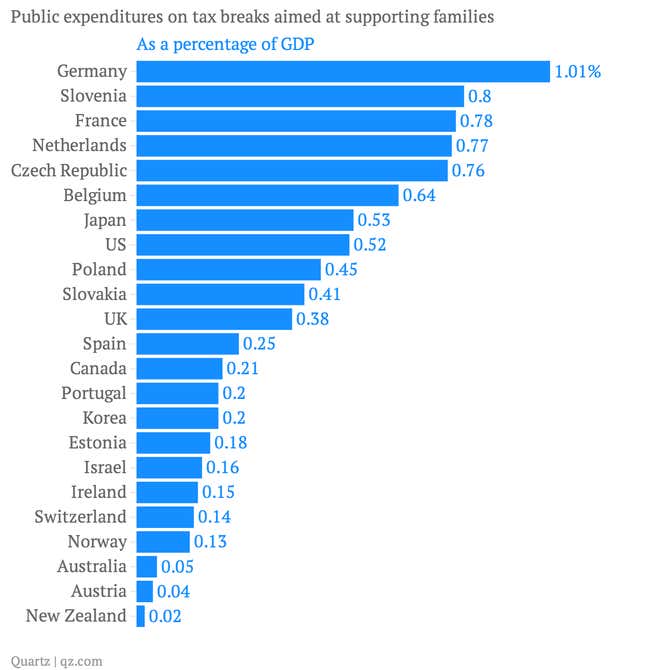
But all in, the US is one of the stingiest advanced economies when it comes to social spending on family support.
